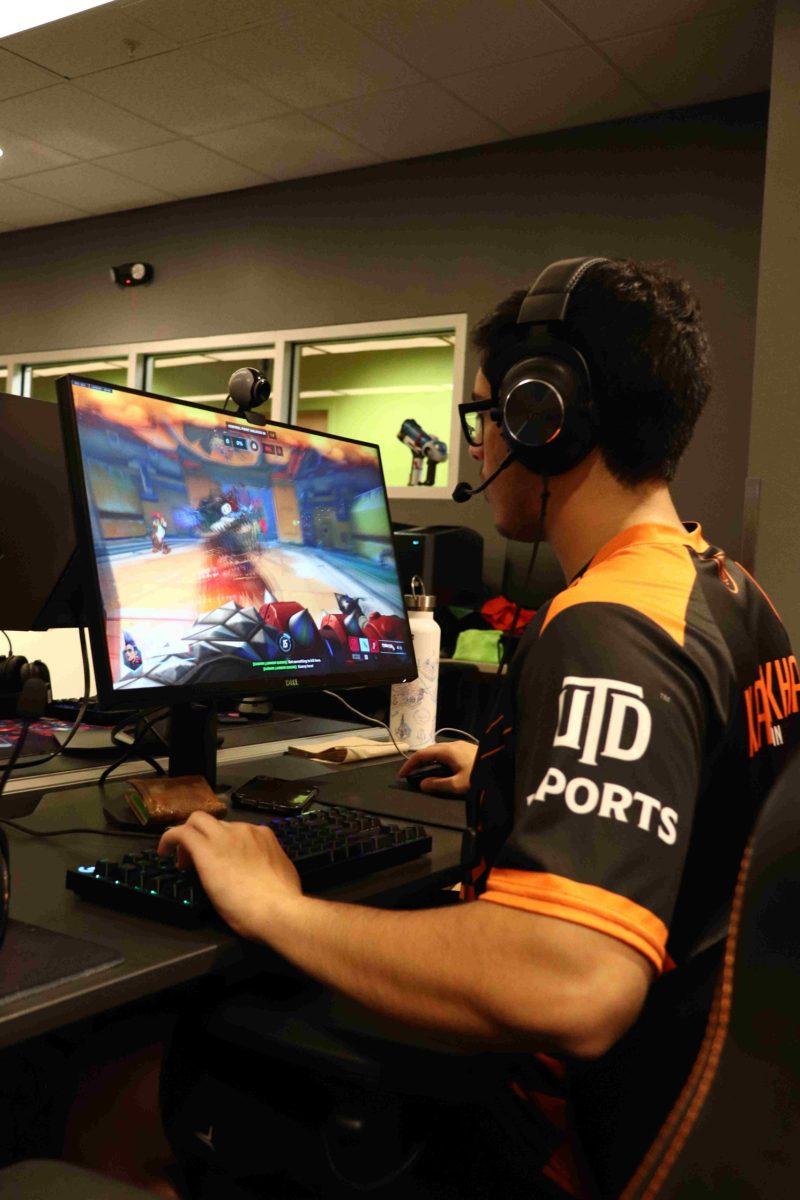UTD’s Overwatch team finished in the top 16 out of over 200 teams in the Overwatch Collegiate Homecoming tournament on Oct. 20 after making it to the play-offs for the first time since spring 2022.
The Overwatch Collegiate Homecoming tournament is one of the largest developer-supported Overwatch competitions and occurs every semester, with hundreds of teams participating from mostly North American universities. UTD Esports advanced to the top 32 after completing a series of Swiss tournaments but did not advance to the top 8 after losing to Rutgers University Knights during the Single Elimination stage. However, the team still finished in the top 16 amongst all collegiate participants, making them a strong competitor throughout North American universities. Noureen Hoq, Overwatch team manager and applied cognition and neuroscience graduate student, said that the tournament is the team’s biggest focus each semester, resulting in the need for lots of team practice.
“At one point in our schedule, there was not a single day they were not playing Overwatch,” Hoq said. “It was full blast. All cylinders running. They practiced for two hours, sometimes four hours, depending on if they had matches. So they really put a lot into it and it paid off with a top 16 finish.”
Hoq said that a professional Overwatch player — Hadi Bleinagel, who plays for London Spitfire — was invited as a guest coach and provided exclusive advice to UTD’s team. Despite the intense practice, however, Hoq said that the top 16 match against Rutgers University was difficult due to a team composition that UTD Esports had not expected to face in the tournament. Kashir Khan, Overwatch team member and software engineering junior, said that the team did not have a backup plan beyond the main team composition they normally used.
“The best thing we did was try to keep a levelheaded coolness,” Khan said. “We understood why we lost. It wasn’t just one individual fall … And then after the match, we were still pretty hopeful that we could do better in the next semester.”
Khan said that he hopes the team will be able to play more flexibly in the future and try other “heroes,” or playable characters, in their compositions. Khan also said that members of UTD Esports are hardworking and make the program feel like a family, bringing the team closer together. Hoq said that she believes this dynamic is key to their success as a collegiate team.
“The core heart of UT Dallas Esports as a whole has always been the same for Overwatch, and that’s us being a family,” Hoq said. “I’ve always believed that that’s what put us on top of some crazy qualifications. It’s because of the bond that the players have with each other outside of the game, and that translates to wins inside of the game, and I’ll never back down from that.”
Drew Boehm, head coach of UTD Esports, said that the team making top 16 was a huge accomplishment by itself. While traditional sports have divisions such as NCAA Division I or Division II, Boehm said, Esports has no such organization, meaning that UTD has been performing well at a top level of collegiate competition.
“Overwatch, they’re killing it this year,” Boehm said. “You know, we fell a little bit short in the Overwatch Collegiate Homecoming playoffs, but I think our guys can go toe-to-toe with just about anybody. So incredibly proud of them and how they perform. Top 16 is huge.”
Currently, the team is preparing for the University of Kentucky Overwatch Fall Invitational, which they qualified for on Oct. 25. The Overwatch Collegiate tournament also occurs in the spring semester, making it a long-term goal for the team.
“I know a lot of our guys have so much passion and were obviously disappointed when they could have done better,” Boehm said. “But I think they represented UT Dallas well, and I think they played to the best of their abilities. There’s always room for improvement, but I think they did a phenomenal job.”





